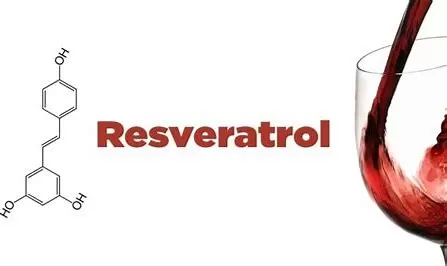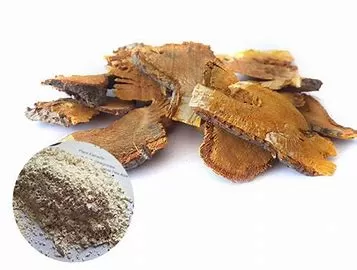- 0086-571-85302990
- sales@greenskybio.com
Is resveratrol safe for kidneys?
2025-03-24
Resveratrol, a natural polyphenolic compound found in red grapes, berries, and peanuts, has garnered considerable attention for its promising health benefits. Revered for its potent antioxidant properties, resveratrol is studied extensively for potential protective effects against a host of ailments, including cardiovascular diseases and cancer. However, as resveratrol becomes increasingly popular in supplements and dietary formulations, questions arise regarding its safety, particularly concerning kidney health. This article evaluates the safety of resveratrol for kidneys, exploring current research, therapeutic implications, and considerations for responsible consumption.
Understanding Resveratrol's Mechanisms
Resveratrol is a phytoalexin, a compound produced in response to stress, such as injury or UV radiation, serving as a defense mechanism against pathogens. Its action in the human body is primarily attributed to its ability to activate sirtuins—proteins associated with cellular stress resistance and longevity. Additionally, resveratrol's antioxidant properties enable it to neutralize free radicals, thereby reducing oxidative stress, which is linked to various chronic conditions, including kidney disorders.
Kidney Function and Vulnerability
The kidneys are vital organs responsible for filtering waste products, balancing electrolytes, and regulating blood pressure. Due to their constant exposure to high volumes of blood and potential toxins, kidneys are susceptible to oxidative damage and inflammation, factors contributing to the progression of renal diseases. In this context, antioxidants like resveratrol are believed to offer protective effects, minimizing the risk of injury and maintaining kidney health.
Evaluating Resveratrol's Safety for Kidneys
Current research indicates that resveratrol may exhibit kidney-protective benefits, largely derived from its antioxidant and anti-inflammatory properties. Several studies suggest that resveratrol can mitigate renal oxidative stress, inflammation, and fibrosis, which are key contributors to nephropathy.
Antioxidant Effects
Resveratrol's capacity to combat oxidative stress is crucial for maintaining kidney function. By scavenging free radicals, resveratrol preserves renal cellular integrity and prevents damage to tubules and glomeruli.
Anti-inflammatory Action
Chronic inflammation is a significant factor in renal impairment. Resveratrol's ability to downregulate pro-inflammatory cytokines offers a therapeutic advantage in curbing inflammation and potentially slowing the progression of chronic kidney diseases.
Protection Against Drug-Induced Nephrotoxicity
Certain medications, including nonsteroidal anti-inflammatory drugs (NSAIDs) and chemotherapy drugs, can cause nephrotoxicity. Research suggests that resveratrol may offer a protective shield against such drug-induced renal damage, thanks to its antioxidative and anti-inflammatory functions.
Evidence from Animal and Human Studies
Animal studies have been instrumental in identifying resveratrol's potential benefits for kidney health. In rat models, resveratrol supplementation demonstrated significant reductions in oxidative stress markers and improved renal function following toxic exposures, such as those from chemotherapy agents.
Human studies, though more limited, have shown encouraging results. Preliminary clinical trials indicate that resveratrol intake can enhance renal antioxidant capacity and improve blood markers of inflammation and oxidative stress—outcomes that support resveratrol's beneficial role in kidney health.
However, while evidence points to resveratrol's safety and advantages, these studies often vary in dosage levels and treatment durations, necessitating further investigation to clarify optimal intake and long-term clinical implications.
Considerations and Cautions
While the existing research supports resveratrol's safety for kidneys, individuals should consider several factors before incorporating resveratrol into their wellness regimens:
Dosage and Quality
The safety and effectiveness of resveratrol are highly dependent on dosage. Typically, doses in research studies range from 100 mg to 500 mg daily. Consumers should ensure they are using high-quality, reputable products, as resveratrol supplements can vary significantly in purity and concentration.
Consultation with Healthcare Providers
Individuals with existing kidney conditions or those taking medications should consult with healthcare professionals before starting resveratrol supplementation. A medical evaluation can help ensure the benefits outweigh any potential risks.
Understanding Possible Side Effects
Though generally considered safe, resveratrol can occasionally provoke mild gastrointestinal issues or interact with anticoagulant drugs due to its blood-thinning properties. Awareness of these effects is critical to minimize risks.
Conclusion
Resveratrol, a compound celebrated for its antioxidative and anti-inflammatory prowess, presents promising benefits for kidney health, with research indicating its protective effects against oxidative damage and inflammation. While initial studies furnish positive outcomes for resveratrol's role in supporting renal function, comprehensive clinical trials are essential to confirm optimal dosages and long-term safety.
For individuals seeking to enhance kidney health through natural means, resveratrol provides a potent option when used responsibly and with guidance from healthcare professionals. As the interest in natural antioxidants continues to expand, resveratrol represents a significant stride in bridging traditional wisdom with contemporary scientific advancements in health and wellness.
- ▶ Hesperidin
- ▶ citrus bioflavonoids
- ▶ plant extract
- ▶ lycopene
- ▶ Diosmin
- ▶ Grape seed extract
- ▶ Sea buckthorn Juice Powder
- ▶ Beetroot powder
- ▶ Hops Extract
- ▶ Artichoke Extract
- ▶ Reishi mushroom extract
- ▶ Astaxanthin
- ▶ Green Tea Extract
- ▶ Curcumin Extract
- ▶ Horse Chestnut Extract
- ▶ Other Problems
- ▶ Boswellia Serrata Extract
- ▶ Resveratrol Extract
- ▶ Marigold Extract
- ▶ Grape Leaf Extract
- ▶ blog3
- ▶ blog4
- ▶ blog5
-
What fruit is highest in resveratrol?
2025-03-24
-
Is It Okay to Take Resveratrol Every Day?
2025-03-24
-
What is resveratrol used for in skin?
2025-03-24
-
What Are the Sources of Resveratrol?
2025-03-24
-
What Is Resveratrol Extract Good For?
2025-03-24
-
Polygonum multiflorum extract
2025-03-24
-
Bitter Melon Extract
2025-03-24
-
Cocoa Extract
2025-03-24
-
Mangosteen extract powder
2025-03-24
-
Calendula Extract
2025-03-24
-
Yellow Pine Extract
2025-03-24
-
Kidney Bean Extract
2025-03-24
-
Polygonum Cuspidatum Extract
2025-03-24
-
Hops Extract
2025-03-24
-
Quercetin
2025-03-24

























